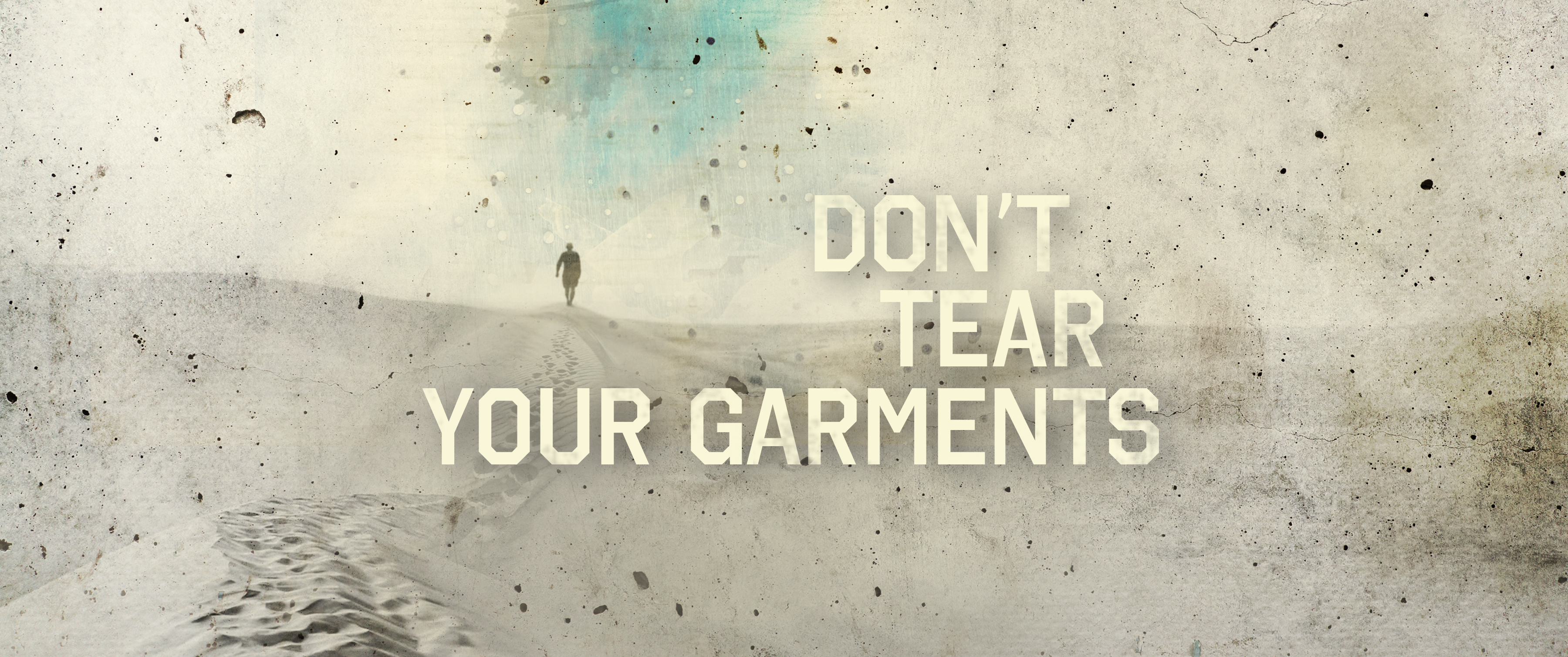Don't Tear Your Garments
Scripture References
Leviticus 21:10; John 19:24; Matthew 26:65; Joel 2:13
Leviticus 21:10 says, He who is the high priest among his brethren, on whose head the anointing oil was poured, and who is consecrated to wear the garments, is to not uncover his head nor tear his clothes. In Bible times, the greatest way that they would express grief, sorrow, heartache, pain was to rend or tear their clothing. From Genesis to Revelation, the Bible is full of people tearing their clothes in desperation and despair. Job did it. Joshua and Caleb did it. David did it. Great kings did it. Many people did it. In dire situations, they would tear their clothes as an outward expression of great grief, regret, and despair. It was a signal to the rest of the world of grief that was too heavy to bear and sorrow that was too deep to express.
But for the High Priest, this was not allowed. God said that, because the high priest has the anointing of the Holy Spirit upon him, and because the high priest has access to the presence of God, he faces no dilemma that he ever needs to tear his clothes over. God forbid the priests to ever feel such despair that they tear their clothes and declare there is no hope.
We all experience pain. We all experience grief, and frustration, and fear. We all experience pain and sorrow. BUT, like those priests, if we avail ourselves of the anointing of the Holy Spirit, and we avail ourselves of God’s presence, then there is nothing that should ever make us think that it’s bigger and greater than our God.
You don’t have the luxury of despair, priest. You can have a bad day. You can go through some tough times. But when it’s all said and done, you walk into God’s presence, throw your hands up, and remember that your God is FOR you. There is a fresh anointing for you if you will just draw near and seek Him in those days of trouble.
When you draw near and after you have prayed and praised and worshipped, look up! Here comes the anointing oil. Here comes the garment of praise. Here comes the presence that heals the broken places. We’re never in a place that we can’t overcome. Thanks be unto God who always causes us to triumph in every place.
Connection Questions
What do you do when you go through difficult seasons and feel overwhelmed?
- I am to obey the scriptures and not tear my garment verbally by talking defeat. What are the first words you tend to express when you go through difficult times?
- I am not going to set my heart on my losses and focus on my problems. When difficult times come are you more likely to remember all the other bad times or to remember God’s faithfulness in the past?
- I am going to focus on the promises, and set my heart on God and His goodness and His faithfulness. Can you recite 3-5 promises from scripture that would be encouraging in bad times?
- I am going to give Him glory when I come out on the other side of my situation. When you come through a storm or there is resolution to your problem, is your first instinct to feel relief and move on, or to come before the Lord and thank Him?
Concluding Thoughts
Joel 2:13 says, Rend your hearts, not your garments. When you go through something that’s tragic, devastating and overwhelming, and you don’t feel like it can ever be fixed and be right again, remember that He said, tear your heart, not your garment. Let brokenness come. Let it drive you back to your knees. Let it drive you back to the only source of joy in this life – the Word of God. Hearing His voice. Sitting at His feet.
Rend your heart. Die to your name. Die to your reputation. Die to your pride. Die to everything. Jesus made himself of no reputation. And He said rend your hearts, and not your garment. If you’re going to tear something up, let it be your heart.
Share








